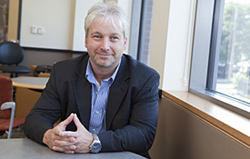Study Offers Economical Solutions for Maintaining Critical Delta Environments
Millions of people across the world live or depend on deltas for their livelihoods.
Formed at the lowest part of a river where its water flow slows and spreads into the sea, deltas are sediment-rich, biodiverse areas, a valuable source of seafood, fertile ground for agriculture, and host to ports important for transportation.
At least half of the deltas around the world are so-called “wave dominated deltas” – open to the sea and under the impact of wave erosion. And many more deltas will come under wave dominance as dammed rivers carry less and less sediment. In a warming climate, sea levels are rising and storms are increasing in frequency and severity, posing threats to these deltas and the people and habitats dependent on them. (more…)

